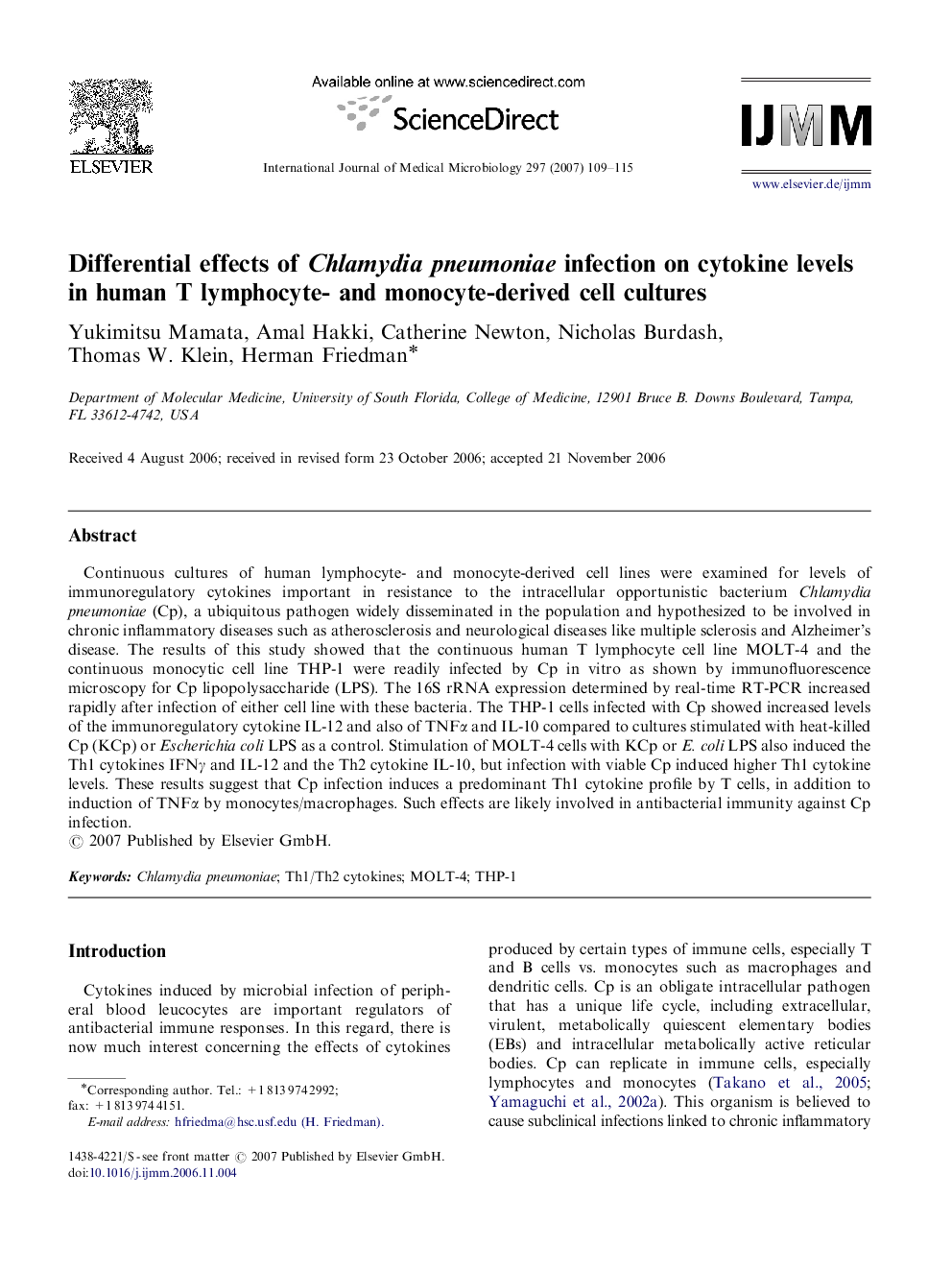| Article ID | Journal | Published Year | Pages | File Type |
|---|---|---|---|---|
| 2055016 | International Journal of Medical Microbiology | 2007 | 7 Pages |
Continuous cultures of human lymphocyte- and monocyte-derived cell lines were examined for levels of immunoregulatory cytokines important in resistance to the intracellular opportunistic bacterium Chlamydia pneumoniae (Cp), a ubiquitous pathogen widely disseminated in the population and hypothesized to be involved in chronic inflammatory diseases such as atherosclerosis and neurological diseases like multiple sclerosis and Alzheimer's disease. The results of this study showed that the continuous human T lymphocyte cell line MOLT-4 and the continuous monocytic cell line THP-1 were readily infected by Cp in vitro as shown by immunofluorescence microscopy for Cp lipopolysaccharide (LPS). The 16S rRNA expression determined by real-time RT-PCR increased rapidly after infection of either cell line with these bacteria. The THP-1 cells infected with Cp showed increased levels of the immunoregulatory cytokine IL-12 and also of TNFα and IL-10 compared to cultures stimulated with heat-killed Cp (KCp) or Escherichia coli LPS as a control. Stimulation of MOLT-4 cells with KCp or E. coli LPS also induced the Th1 cytokines IFNγ and IL-12 and the Th2 cytokine IL-10, but infection with viable Cp induced higher Th1 cytokine levels. These results suggest that Cp infection induces a predominant Th1 cytokine profile by T cells, in addition to induction of TNFα by monocytes/macrophages. Such effects are likely involved in antibacterial immunity against Cp infection.
